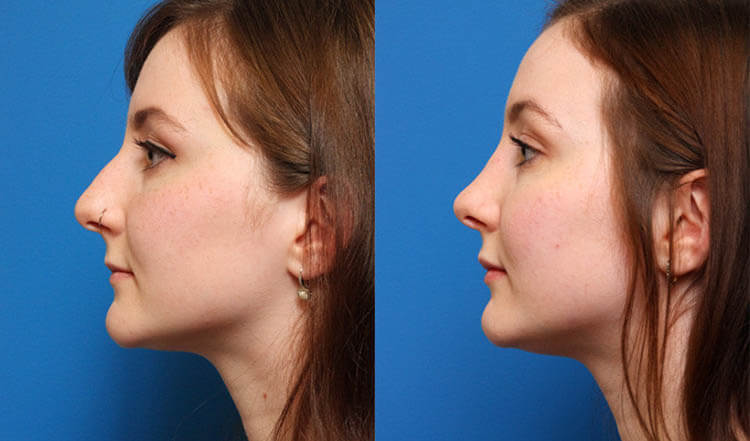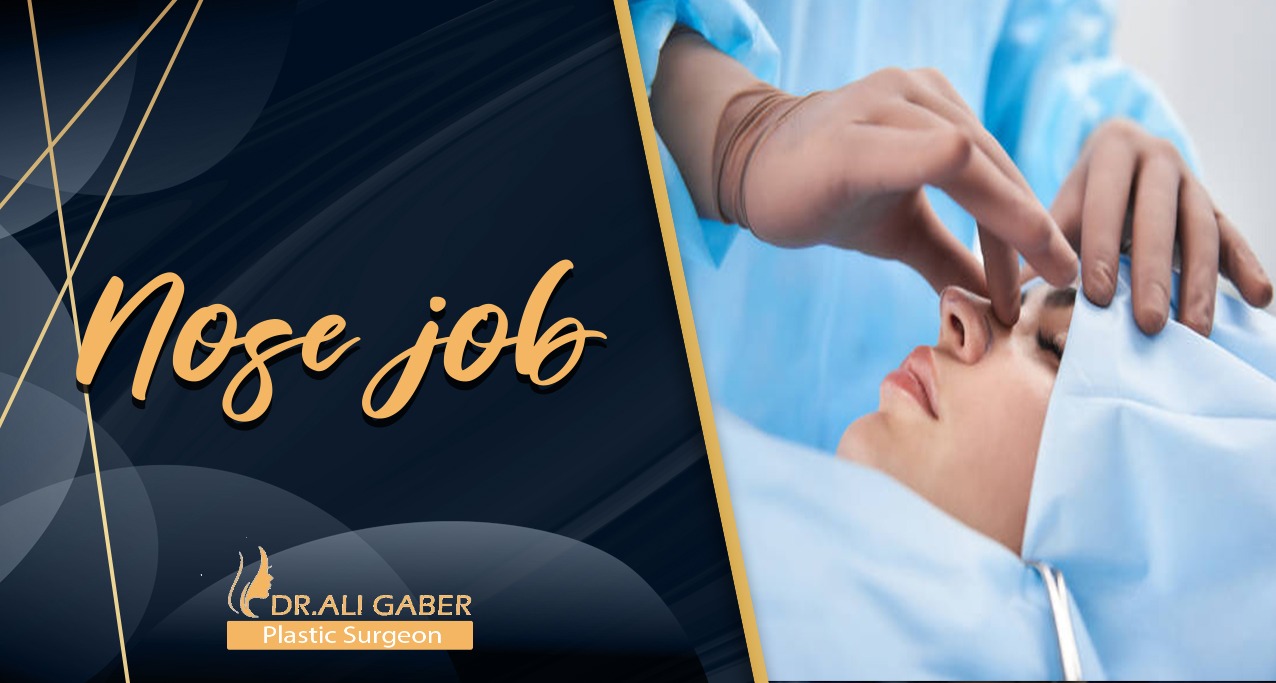Nose job may be resorted to for many reasons, some are purely cosmetic, and some are medical, so what should you know about this process? Here is the most critical information.
Rhinoplasty is a surgical technique that alters the shape or inclination of the nose by making precise alterations to its bones. Here’s all you need to know about rhinoplasty:
Common reasons for a nose job

As we have already mentioned, this process is not done for purely cosmetic purposes only, and these are the most common reasons for rhinoplasty and the problems that this process can fix:
- Narrowing of the nostrils that impede breathing.
- Nose fracture.
- Congenital issues with the nose’s structure.
- Changing specific aspects of the nose’s form, such as its tilt or size.
- Nose bone deformity.
- In general, rhinoplasty is one of the most common plastic surgeries today.
The right age for a nose job
If the purpose of the operation is purely cosmetic, you must wait until the nasal bone is fully grown, that is, after past adolescence at least.
The procedure can be conducted at any time, even at a young age, if the operation’s objective is medical or even an emergency.
Preparations before the nose job
Before operating, the decision must first be confirmed and discussed with the doctor, as some patients and cases may not be suitable for rhinoplasty. Some tests are also requested, and the nose is examined from the inside and outside first, along with taking pictures of it.
It is preferable to quit smoking before the operation, as the smoker has a more extended recovery period.
Nose job steps
These are the expected steps of a nose job:
- A local anesthetic is used for the patient to make him feel complete numbness in the face area.
- An incision is made in the skin of the nose from the outside and removed to expose the bone.
- The surgeon begins to work on reshaping and correcting the nasal bone, adding cartilage, or removing excess bone from it, for example, according to the needs of the case.
- The surgeon finishes in 1-2 hours, but it may take a little longer in more complex cases.
Recovering from a nose job

After nose job, this is what you should expect:
- The doctor often places a particular scent on the nose until the nose is fixed to its new shape and shape, and stents may be needed inside the nose. These stents may remain with the patient for a whole week.
- The patient is monitored a few hours after the operation and may be sent home on the same day or 1-2 days after the procedure, depending on the patient’s condition.
- The patient should lie down after the operation for prolonged periods with the head raised above the chest level.
- The doctor uses a suture that does not need to be removed and that identifies with your skin and dissolves in it with time. But if the doctor used a suture that does not dissolve here, you must visit the doctor a week after the operation to remove the suture.
- The patient may feel nasal congestion or even light and frequent bleeding, which is normal.
- You may need to cover your nostril with a special pad to absorb mucus and any remaining blood.
- The patient may feel a kind of headache, memory problems, in addition to swelling or even numbness in the face, and these are everyday things.
Possible complications of nose job
Before deciding and deciding whether or not to undergo rhinoplasty, you must be aware of the possible complications of the operation, and here is a list of the most important ones:
- breathing problems
- Permanent scars and traces on the face.
- Constant numbness and tingling in the nose.
- Nose bleeding.
- Rupture of blood vessels in the vicinity of the nose.
If you are not completely satisfied with the results of the operation, you should wait at least a year to undergo another rhinoplasty.
How to prepare for a nose job
The tips and instructions for preparing for a nose job include: Avoid the use of aspirin, ibuprofen, naproxen, and other Non-steroidal anti-inflammatory drugs (NSAIDs), and vitamin E supplements for two weeks before surgery, and talking with the doctor if using blood thinners and asking for advice about the appropriate time to stop using them, and it is worth noting that Paracetamol is taken in addition to the daily vitamins It does not affect rhinoplasty, and a person can use these medicines and vitamins as needed.
- Refrain from smoking for two weeks before and after surgery.
- Smoking slows down the healing process and can lead to postoperative scarring of the nose. Avoid exposure to the sun two weeks before the surgery, and use sunscreen with a protection factor of at least 30.
- Avoid exposure to allergens before and after the operation. If the person constantly suffers from seasonal allergies, it is recommended to schedule the process at the time of the year when symptoms of Seasonal allergies are gone.
- Buy some medical preparations to use after surgery, such as saline nasal sprays, Vaseline ointment, and a laxative medicine to avoid constipation caused by general anesthesia and the required rest period after surgery.
- Refrain from all types of food and drink starting from midnight before surgery and arrange for someone to escort the patient home after the surgery where the person is not allowed to drive or leave alone. Wear loose-fitting clothing that fits the forehead, and avoid clothing that may irritate the nose when put on or taken off.
- Leave valuables at home and don’t wear jewelry on the day of the surgery.
- Avoid applying make-up to the face or eyes, and avoid nail polish on the day of the surgery.
- Wear glasses if desired, and avoid wearing contact lenses on the same day of the surgery.


